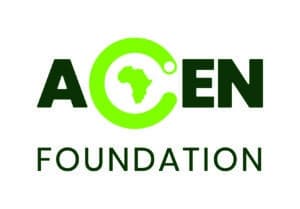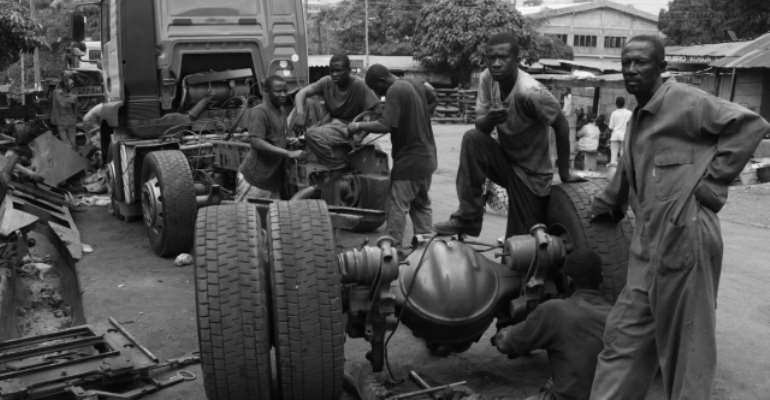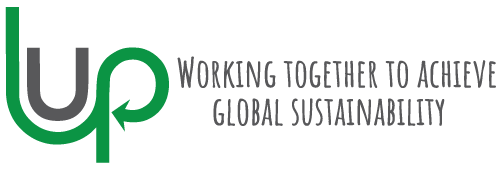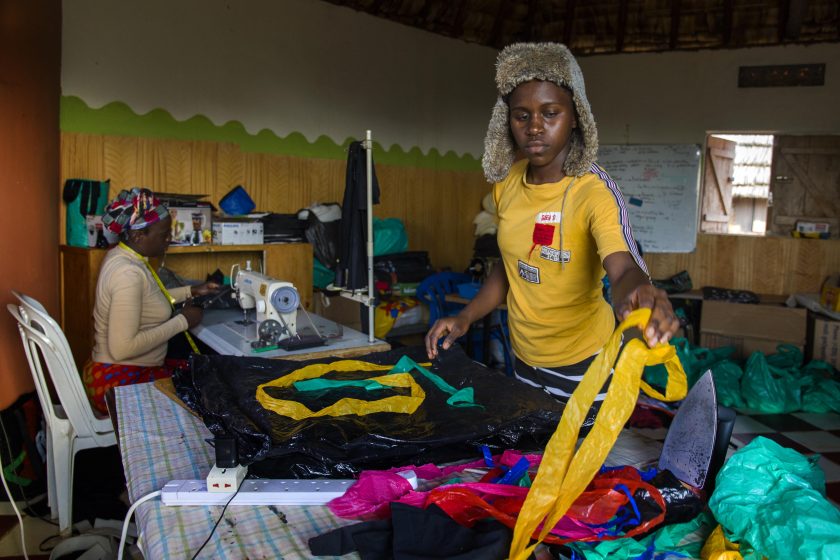Image Credit: Katumba Badru Hidden Flows Photo Showcase
LUP: What’s been happening with ACEN? Has COVID affected the work that ACEN is doing? When we last spoke, you mentioned ACEN was now planning the 1st Pan African Circular Economy Conference to take place in 2021. Is this still happening?
Peter: As you can imagine, since my first interview, the circular economy has gained a lot more attention globally. We are also seeing a great deal of interest in how circular principles can benefit the development of African countries through greater international co-operation and support. This has been seen in the positive responses we have received from ACEN’s participation in writing of 8 country reports and a continental report on EU-Africa co-operation for the European Commission.
The level of ACEN’s activity in this space has increased in the last 12 months as international funds are more available for CE projects. COVID has had an impact how we work as face-to-face meetings have often been difficult to achieve. Online meeting platforms have helped considerably and reduced travel costs, but in Africa personal contact is an important element of how research and implementation are undertaken.
We are now involved in several projects as part of consortia bidding for competitive tenders such as Horizon 2020 funding as well as invitations to lead or contribute to research projects. These include policy development for circular food systems, circular entrepreneur incubation and scoping studies for circular business platforms in two African countries.
ACEN has recently signed a co-operation agreement with partners in Portugal (CECOLAB) and Brazil (Exchange 4 Change) as part of a South / South / North collaboration initiative to facilitate interaction on circular economy between Europe, Latin America and Africa. The aim is to share knowledge between the Global South and Global North to create opportunities for spurring innovation and making the transition more equitable by creating green jobs and lowering environmental impacts. The increasingly worldwide development of CE is the establishment of The Global Alliance on Circular Economy and Resource Efficiency.
There are some exciting developments in the work that ACEN is doing with universities and learning institutions across the continent. We now have an Academic Programme in place which comprises the African CE Research Group and a working group developing CE curriculum for students and training material for business.


ACEN Foundation: https://acenfoundation.org/
A significant initiative in ACEN’s development has been the establishment of the ACEN Foundation in partnership with Trinomics, a Dutch sustainability consultancy, with whom we worked on the European Commission reports. The Foundation works across Africa to implement circular strategies and projects, enhance capacity amongst practitioners in the private and public sector, fundraise for the delivery of projects, and support entrepreneurs to develop unique circular business models. This collaboration will produce a greater impact than would be possible by each organisation working separately.
You asked about the Africa Circular conference. We still have ambitions! With the arrival of COVID we have had to postpone our plans for a single Pan-African in-person event. We are considering the idea of a series of workshops to be organised by our Country Chapters with the support of governments and businesses. As regards a continent-wide conference, it is possible that the World Circular Economy Forum will be held in Africa at some point in the future; we are in discussion with the organising team at SITRA as to how ACEN can collaborate in the organisation of the conference.
LUP: In this new global landscape, how can businesses or individuals best get involved in Circular Economies in general, and more specifically with an organisation such as ACEN?
Peter: There are many ways of engaging in the subject of the circular economy. Catherine Weetman at Rethink Global produces “The Circular Economy Podcast” and has recently published the second edition of her book “A Circular Economy Handbook” The Ellen MacArthur Foundation website provides a huge amount of resources. Finally, here is a suggestion for those just starting in exploring the subject: “Circular Economy for Dummies”.
Anyone interested in being involved or supporting ACEN’s work can take a look on our website at our new Membership Programme. If anyone reading this is based in Africa and have a professional interest in applying circularity in their work, they can apply to become a Country Representative or a Chapter Member. If their organisation or academic institution wishes to contribute to our work, there are separate categories for each. Otherwise, there are two categories for individuals (Friend of ACEN) and students who wish to be kept informed about ACEN’s work through newsletters and events. We also have LinkedIn and Facebook groups that people can join to share ideas and projects.
ACEN is action focussed and so we continue to explore opportunities for collaboration to develop and implement projects on the ground. A good example of this is the initiative established by Footprints Africa to research circular case studies – report and map created for us by a UNEP partner, GRID-Arendal. If anyone would like to add a circular case study from Africa to the database, they can do so via this link.


LUP: Is there anything else you’d like to add?
Peter: Yes, I just wanted to note that circularity has been practised across Africa for generations, to a large extent out of necessity. This image is of cocoa trucks being repaired at the Suame Magazine hub in Kumasi, Ghana where replacements were not available and spare parts were manufactured. The area is made up of 12,000 small scale engineering industries, repair works, scrap yards, workshops with a working population of about 200,000 supporting the livelihood of over 600,000 people. We also conscious that
Higher income countries have much to learn from indigenous practices in Africa which are regenerative and restorative in nature and contribute towards circular thinking. In Europe and North America we focus on measuring success through a very blunt instrument called GDP (Gross Domestic Product) yet it says nothing about people’s well-being. In fact, the word ‘economy’ comes from the Greek word ‘oikonomia’ which means ‘household management’. The word ‘wealth’ comes from the Middle English meaning ‘well-being’. So rather than expecting countries to achieve continuous GDP growth, we should be focusing on ways to ensure the ongoing health and well-being of individuals within the limits of our planet’s resources – along the lines of Kate Raworth’s Doughnut Economics.
Thank-you so much for your generosity Peter, we are delighted to have you continuing to help us learn through your experiences about this shared passion!
To contact Peter and ACEN:


Read the first part of the interview HERE.
For the original interview with Peter back in 2019 click HERE .

